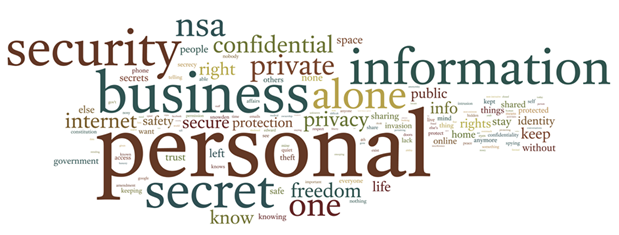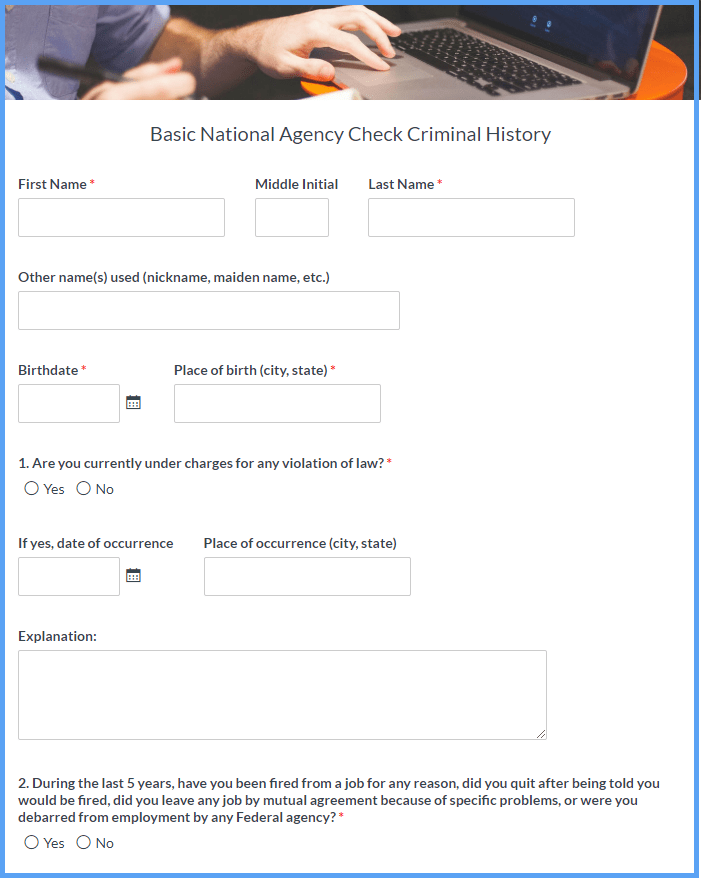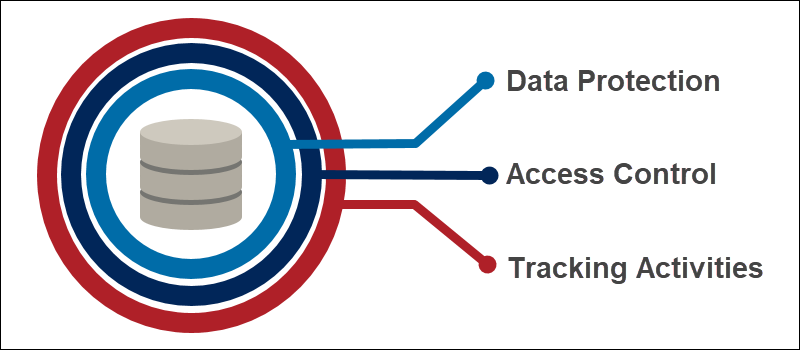dis 5 reply
 kiace1
kiace1
FIRST STUDENT
Mohamed IK
Hello classmates,
Every new generation gets better accomodation than the previous one. the world of technology or what we call the degital world is full of new aspects created, updated or discoverred. there is non stop imagination accompagned with non stop discoveries and invetion. our world nowadays is more open. we can know thousands of informaton, people and places in one click. along with this, privacy of our life is becoming more social and known by other we sometimes do not even meet, virtual people. In the subject of this week, we are going to present the quoncequences of open personal database and to what extent, danger or situation can this phenomon put an individual in.
The birth of the concept of privacy was conceived in counterpoint to the government’s growing ambition to peer inside long-closed compartments of our personal lives. The struggle took place most often in court. The leading cases mark milestones in that history, and show the disproportionate place of minority surveillance in the evolution of law.
The provenance of privacy as a legal right is generally traced to Louis D. Brandeis. In “The Right to Privacy,” published in the Harvard Law Review in 1890, Brandeis and Samuel D. Warren, his law partner and former classmate, made the case for a “right to be let alone” embedded in English Common Law. Seventy-five years passed before the Supreme Court gave its blessing to a version of that claim.
However, a data privacy policy is a legal document that lives on your website and details all the ways in which a website visitors’ personal data may be used. At the very least, it needs to explain how your website collects data, what data you collect, and what you plan to do with that data.
/database-157334670-5c29939d46e0fb0001edf766.jpg) Furthermore, a database is an organized collection of structured information, or data, typically stored electronically in a computer system. A database is usually controlled by a database management system (DBMS). Together, the data and the DBMS, along with the applications that are associated with them, are referred to as a database system, often shortened to just database.
Furthermore, a database is an organized collection of structured information, or data, typically stored electronically in a computer system. A database is usually controlled by a database management system (DBMS). Together, the data and the DBMS, along with the applications that are associated with them, are referred to as a database system, often shortened to just database.
Databases have evolved dramatically since their inception in the early 1960s. Navigational databases such as the hierarchical database (which relied on a tree-like model and allowed only a one-to-many relationship), and the network database (a more flexible model that allowed multiple relationships), were the original systems used to store and manipulate data. Although simple, these early systems were inflexible. In the 1980s, relational databases became popular, followed by object-oriented databases in the 1990s. More recently, NoSQL databases came about as a response to the growth of the internet and the need for faster speed and processing of unstructured data. Today, cloud databases and self-driving databases are breaking new ground when it comes to how data is collected, stored, managed, and utilized.
SQL is a programming language used by nearly allrelational databases to query, manipulate, and define data, and to provide access control. SQL was first developed at IBM in the 1970s with Oracle as a major contributor, which led to implementation of the SQL ANSI standard, SQL has spurred many extensions from companies such as IBM, Oracle, and Microsoft. Although SQL is still widely used today, new programming languages are beginning to appear.
Personally Identifiable Information (Pii) is a type of data that can be used to identify a person. The term is well-known in the United States, where it has a variety of meanings. The term “personal data” is more widely used in European law, such as the GDPR.
Individuals should be prepared to protect their data because of its sensitivity. It’s security means taking the necessary precautions to prevent it from being lost, mishandled, or misused, as well as preventing unauthorized access. If you no longer require it, you should try to destroy, dispose, or de-identify it so that it does not get into the wrong hands. For example, if you have moved or stopped taking medications for a certain condition, your sensitive data, including your address and medical records, should be removed because they are no longer useful.
There’s a growing awareness about the value of personal information, with The Economist recently arguing that the world’s most valuable commodity is now no longer oil, but data. People seem happy to give up some of their privacy in order to pay for online services such as email, social media, and internet search tools. So, by that logic, people should be more than willing to sacrifice some privacy in order to help maintain security. I believe that safety should always trump privacy concerns. Giving privacy to government need is not like giving it on social media or on internet website for some reasons. I see privacy really personal the way the shape healthy body is. However, I see privacy to private bodies like banks, school, government is less dangerous to when it is revealed or gave for the sake of pleasure as social media. Digital life has positive and negative aspects
A professor ''Eric Royer'' from North America said, “I’ve cut off from lots of digital media. I realized it was consuming lots of my time. It didn’t make me feel good – what I was seeing and reading made me mostly angry and depressed. It was feeding negativity. I am happier without it. However, a friend who has a child with a chronic medical condition has monitoring so that medical personnel are notified when parameters are exceeded so interventions can occur rapidly. The child gets fast feedback, too, so they can change behavior or take action in a way that would not have been possible five years ago.”
Getting deeply into this subject, An opinion from Dr. Mariarosaria Taddeo, Researcher Fellow at the Oxford Internet Institute. speaking about whether there is a conflict between privacy and security?
In essence, giving privacy or reveals it does not mean 100%. When privacy is recognized as a basic human right, there are consequences for those who disrespect it. While there are many “soft” examples of personal data use, like targeted ads, established privacy rights draw a line in the sand. Without these restrictions, corporations and governments are more likely to steal and misuse data without consequence. Privacy laws are necessary for the protection of privacy rights.
 The government has a responsibility to protect its citizens, but it often crosses the line when it comes to surveillance. In 2013, Edward Snowden blew the whistle on the NSA’s spying program, bringing the issue of privacy into the spotlight. The balancing act between national security, freedom of expression, surveillance and privacy rights is tricky. It’s generally agreed upon that if the government doesn’t have a reason to spy on someone, it shouldn’t. No one wants to live in a Big Brother state.
The government has a responsibility to protect its citizens, but it often crosses the line when it comes to surveillance. In 2013, Edward Snowden blew the whistle on the NSA’s spying program, bringing the issue of privacy into the spotlight. The balancing act between national security, freedom of expression, surveillance and privacy rights is tricky. It’s generally agreed upon that if the government doesn’t have a reason to spy on someone, it shouldn’t. No one wants to live in a Big Brother state.
I recon there is no way to hide private life to the government. It is being collected from different sources from Via National Security Surveillance Authorities, borders, school, banks or even phone companies. I believe hiding privacy from government is a sort of fraud where problems start. Personally, I support my personal information are shared only with official bodies like banks, photo carrier, school…. etc. in the same point all what is for pleasure on internet including social media are not meant to have a privacy of any individual. However, most of these bodies require pseudonym instead.
 It is not necessary to know all the privacy of one another. Yet, it is important for a company to know the back ground on any individual enrolling to work in their place. Having a public data on individuals may lead to some criminal deeds or thefts. For instance: When sensitive data is exposed, personal information protection is compromised. It is possible for someone’s identification to be stolen (i.e. someone might begin to impersonate you online). In addition to that. Also, If your tax or financial data falls into the wrong hands, particularly cyber-criminals, they may be able to make illegal withdrawals or transfers from your bank account. At last, most businesses undertake pre-employment screening for new or existing employees. As a result, if there is sensitive info and it’s leaked online, that violates the company’s regulations or requirements, you may lose your job. This is taken as a personal information protection measure at workplaces.
It is not necessary to know all the privacy of one another. Yet, it is important for a company to know the back ground on any individual enrolling to work in their place. Having a public data on individuals may lead to some criminal deeds or thefts. For instance: When sensitive data is exposed, personal information protection is compromised. It is possible for someone’s identification to be stolen (i.e. someone might begin to impersonate you online). In addition to that. Also, If your tax or financial data falls into the wrong hands, particularly cyber-criminals, they may be able to make illegal withdrawals or transfers from your bank account. At last, most businesses undertake pre-employment screening for new or existing employees. As a result, if there is sensitive info and it’s leaked online, that violates the company’s regulations or requirements, you may lose your job. This is taken as a personal information protection measure at workplaces.
Crime statistics are important in creating accurate budgets4. They can show where more resources are needed, as well as where fewer resources are needed as a community grows safer. Without statistics, it would be impossible to create appropriate law enforcement budgets. However, those records are not to be shared in public except with the job companies that are in need of it and official bodies.
 Public court proceedings are meant to hold the justice system accountable by allowing the public and media to see and report justice at work. Likewise, public access to court records helps serve this goal (although some argue public access should have its limits). But, for the most part, anyone can go to a court clerk's office (and, sometimes, on a court or state agency website) and search the files for records of conviction for a certain person.
Public court proceedings are meant to hold the justice system accountable by allowing the public and media to see and report justice at work. Likewise, public access to court records helps serve this goal (although some argue public access should have its limits). But, for the most part, anyone can go to a court clerk's office (and, sometimes, on a court or state agency website) and search the files for records of conviction for a certain person.
Another level of access might be available for employment background checks.) Until relatively recently, if you wanted to find out if someone had a criminal record, your only method would be to visit the clerks' offices of every county in your state (and in the country, if you wanted to be really thorough). But the Internet and sophisticated data gathering changed all that.
In conclusion, Without a question, your private data is said to be “your existence.” It’s understandable, given that it includes everything about you. As a result, protecting your personal information at your workplace is almost as important as keeping yourself in good health. A lot of data is shared with employers which may give hackers too many clues. The same may be said for businesses. If the data is compromised, leaked, or deliberately modified, businesses that are unable to protect the integrity of their clients’ confidential data would suffer losses.
Although data should be shared, protecting personal data at your workplace is a good idea. Disclosing all private data can be harmful. That is why personal information security at the workplace is of paramount importance. The consequences of giving out sensitive data, whether directly or indirectly, are the same.
Data protection at your workplace is one approach to avoid the ostensible repercussions of indiscriminately releasing sensitive data. As a result, you should look for ways to protect your personal info, either actively or passively, through companies that keep track of it. Protect your data at your workplace or anywhere today.

References:
https://www.nibusinessinfo.co.uk/content/types-database-system
Georgetown Law School Center on Privacy and Technology, June 22, 2017, https://www.law.georgetown.edu/news/web-stories/color-of-surveillance-immigrants.cfm.
https://www.debatingeurope.eu/2017/09/21/give-privacy-improve-safety/
SECOND STUDENT
Christopher H
Are you comfortable with giving away some of your privacy for increased security? Why or why not? How far would you let the government go in examining people's private lives?
There are rules and regulations pertaining the safe-keeping of personally identifiable information (PII), Health Patient Information (HPI), payment card information (PCI) and general data. These rules govern how data should be stored and what security measures to take to ensure its safety. These most common rules are: Payment Card Industry Data Security Standard (PCI DSS), Health Insurance Portability and Accountability (HIPAA), and General Data Protection Regulation (GDPR). Auditing companies who collect these types of information ensure that those companies are complying with the rules that pertain to them and the data they're collecting. Each country has their own rules on the storing and sharing of data, which prohibits companies from storing data from one country in another country. This is known as Data Sovereignty. Today, it is not uncommon for companies to collect data on people in order to tailor your experience based on your interests (the sites you frequent). I personally do not mind it if I am visiting websites, but I do find it eerie that I receive ads based on things I say. Everyone has a right to privacy, especially in their homes, and that applies to Governments as much as it does to private companies. I think informing us on the use of cookies is a step forward; this should be the norm for other data as well. For example, accepting Terms and Privacy Policy when entering a site.
How much access should we have to certain aspects of others' private lives? For example, should States share criminal databases? But should a database of people paroled or released for crimes be made public? Why or why not?
I should not know something about another person they would not want me to know. Some information, such criminal records, as stated in the example, is used to for the hiring process. The employer perhaps does not want somebody with repeated aggravated assault charges in their work place, and that is understandable. A person can go through the process of expunging a criminal record, but then a record of expungement will exist. However, the person is not required to disclose the details of it, unless the employer is a federal government entity.
If the information is something you would write in a private journal, I should not know it.
Resources:
PCI Compliance Guide, https://www.pcicomplianceguide.org/faq/
European Union (EU), General Data Protection Regulation, https://gdpr-info.eu/
Office for Civil Rights (OCR), (July 26, 2013), Summary of HIPAA Security Rule, https://www.hhs.gov/hipaa/for-professionals/security/laws-regulations/index.html


